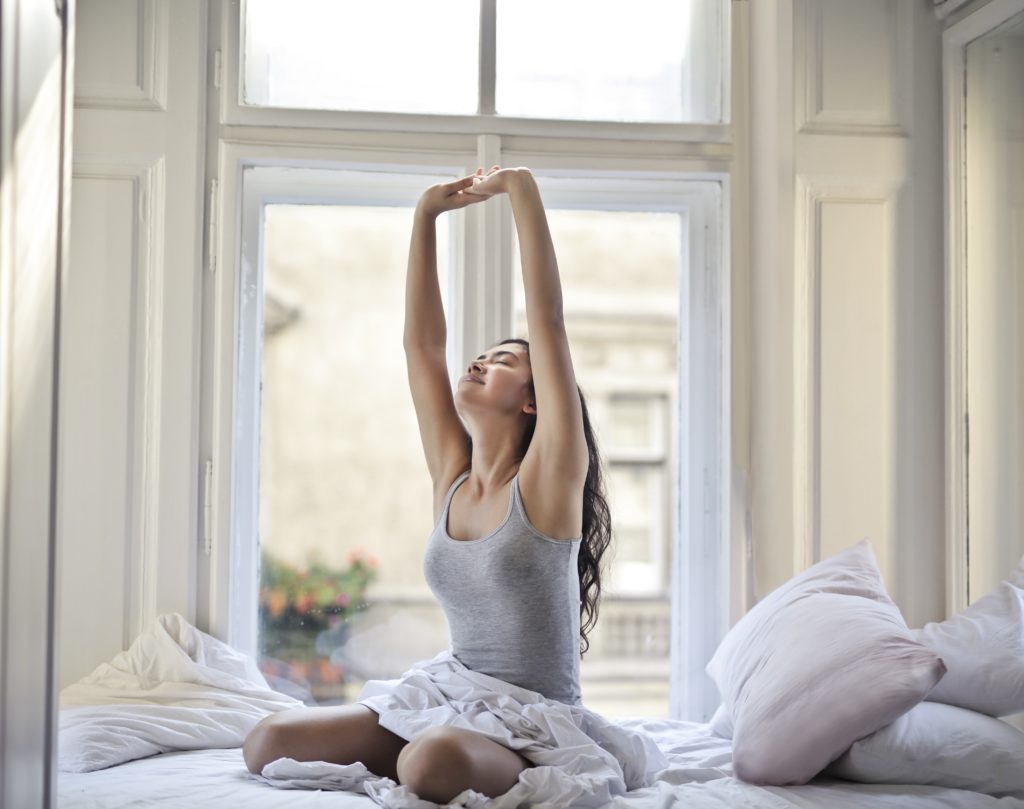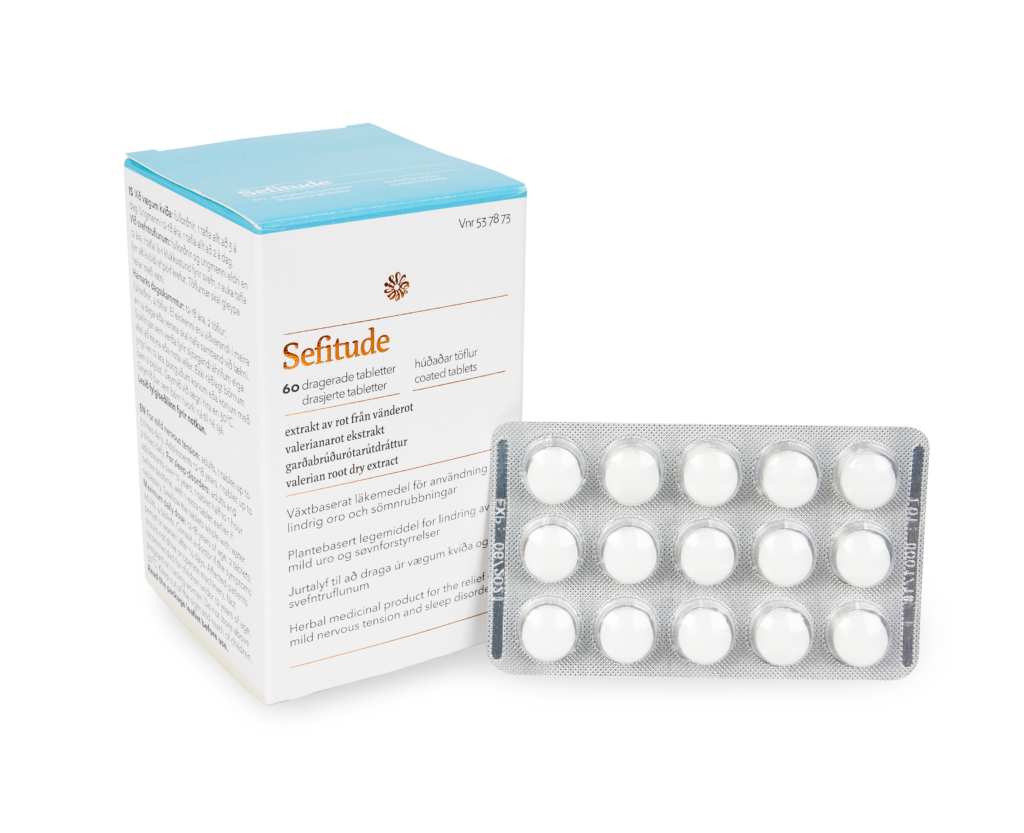Getting enough of quality sleep is vital for our wellbeing and helps us cope with the challenges of daily life1. Sleeping well is especially important now, as the days get shorter, and as we continue to fight the global pandemic that has upset so many of our daily routines and increased stress in our lives. Prioritizing sleep is important, so both the body and mind have the chance to recover from daily stress. The benefits of a good night’s sleep for our well-being are well known and include reduced sadness, anxiety, and stress2. Regular sleep that includes 7-9 hours of restorative sleep every night is the basis for a good sleep hygiene3. This has been defined as the length of sleep that is adequate for most adults. Children and teenagers, who are still maturing, need more sleep3.
Sleep quality matters
Sleep allows us to process stress, emotions, and daily experiences. That is why sleep is even more important during stressful times. Depriving oneself of sleep to cope with stressful work, studies or other situations is all too common but comes with little benefits since the body needs sleep to process the stress, we experience3. Still, the length of sleep is not the only thing that matters but also the quality of sleep.
Is it possible to influence sleep quality? Sleep is divided into few sleep stages that we go through as we sleep; light sleep, deep sleep (aka slow-wave sleep), and REM sleep. We cycle between these stages during the night but the time we spend at each stage is directly related to how rejuvenating the sleep is and how refreshed we feel when we wake up6. Deep sleep is the most rejuvenating sleep stage, and we spend more time in a deep sleep during the first part of the night. To get as much deep sleep as possible it is important to go to bed early4. Getting more deep sleep can greatly improve the quality of sleep 5,6.
You can improve your sleep
As discussed above, a good night’s sleep is vital for our wellbeing. You are an expert in your own sleep and recognize your own sleeping patterns better than anyone else. It should therefore be relatively easy to take simple steps to improve your sleep. You can start improving your sleep by considering the steps listed here below:
- Go to bed and wake up at a similar time every day
Regular sleeping patterns improve the quality of our sleep and help keep our internal clock in equilibrium7. - Exercise and spend time in nature
Exercising regularly at medium intensity and spending time in nature can improve our sleep greatly and help us fall asleep in the evening8. - Reduce caffeine and alcohol consumption
Consuming coffee, energy drinks and alcohol reduces sleep quality significantly. We spend more time in light sleep and do not experience the rejuvenating and refreshing effects that sleep can have9,10 . - Keep it dark in the evening but bright in the morning
Our body uses the level of light around us to determine when to feel sleepy and when to feel awake. Turn down the light in the evening but keep it bright in the morning and during the day11. Daylight lamps can be helpful with this. - Reduce the screen time before bedtime
The light that is emitted by our phones, tablets, and computers keep us awake. It is harder to become sleepy when staring at a screen and this can make it hard to fall asleep11.
Sefitude is a herbal product to improve sleep quality
Sefitude from Florealis is the only approved sleep aid available over the counter in Iceland. It is an approved herbal medicinal product that has both calming and anxiolytic effects. It can shorten the time it takes to fall asleep and improved overall sleep quality. Sefitude contains an extract from Valeriana radix but the anxilytic and sedative effects of the herb are well-known and validate through clinical trials. Sefitude is used in the evening before sleep and helps the individual to fall asleep and stay asleep. Sefitude can also be used up to three times a day to reduce anxiety. The properties of this herbal medicine have a slow onset and continuous use over 2-4 weeks is recommended before the full effects can be felt. Sefitude is non addictive and non-sedative and can be used from the age of 12. Sefitude is available in every pharmacy in Iceland and selected pharmacies in Sweden.
Useful information
To use for sleep disorders: 1 tablet ½ -1 hour before sleep for older than 12 years. To use for anxiety: 1 tablet 1-3 times a day for adults and 1 table 1-2 times a day for individuals 12 – 18 years. Daily maximum dose for individuals 12 -18 years is 2 tablets but for adults 3 tablets. Sefitue is not intended for children under 12 years or for pregnant or breastfeeding women. Please read the enclosed leaflet carefully. Seek medical advice if more information is needed regarding risks and side effects. See more information about Sefitude at www.serlyfjaskra.is (Iceland) or at www.fass.se (Sweden)
.
References
- Harvard Medical School. (2019). Sleep and mental health: Sleep deprivation can affect your mental health. Harvard Health Publishing. Retrieved November 3rd 2020.
- Freeman, D. et al. (2017). The effects of improving sleep on mental health (OASIS): a randomized controlled trial with mediation analysis. Lancet Psychiatry, 4(10): 749-758.
- Hirshkowitz, M. et al. (2015). National Sleep Foundation’s updated sleep duration recommendations: final report. Sleep Health, 1(4): 233-243.
- Roth, T. (2009). Slow wave sleep: Does it matter?. J Clin. Sleep. Med, 5(2 suppl); S4-S5.
- Harvard Medical School. (2007). Natural patterns of Sleep. Healthy Sleep. Retrieved November 3rd 2020.
- American Sleep Association. (n.d.) Deep sleep: How to get more of it. Retrieved November 3rd 2020.
- Ferrara, M. & Gennaro, L. (2000). How much sleep do we need?. Sleep Medicine Reviews, 5(2): 155-179.
- org. (n.d.). How does exercise help those with chronic insomnia?. Retrieved November 3rd 2020.
- Pacheco, D. (2020). Alcohol and sleep. Retrieved November 3rd 2020.
- Belenky, G. (n.d.). Caffeine and sleep. Retrieved November 3rd 2020.
- Gooley, J.J. et al. (2011). Exposure to room light before bedtime suppresses melatonin onset and shortens melatonin duration in humans. Clin. Endocrinol. Metab. 96(3): E463-E472.




